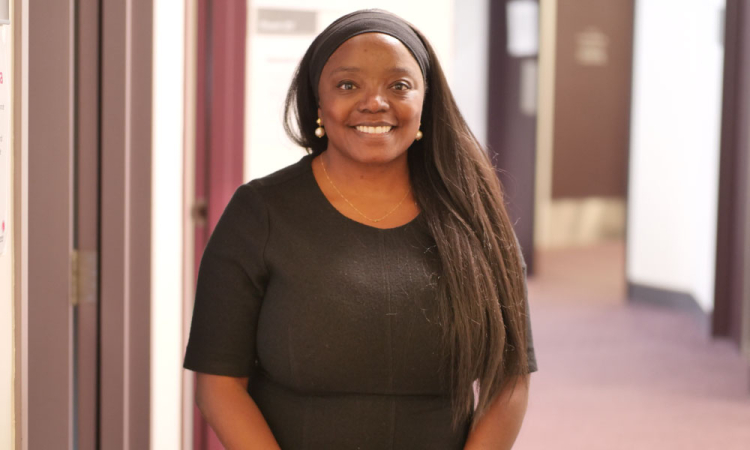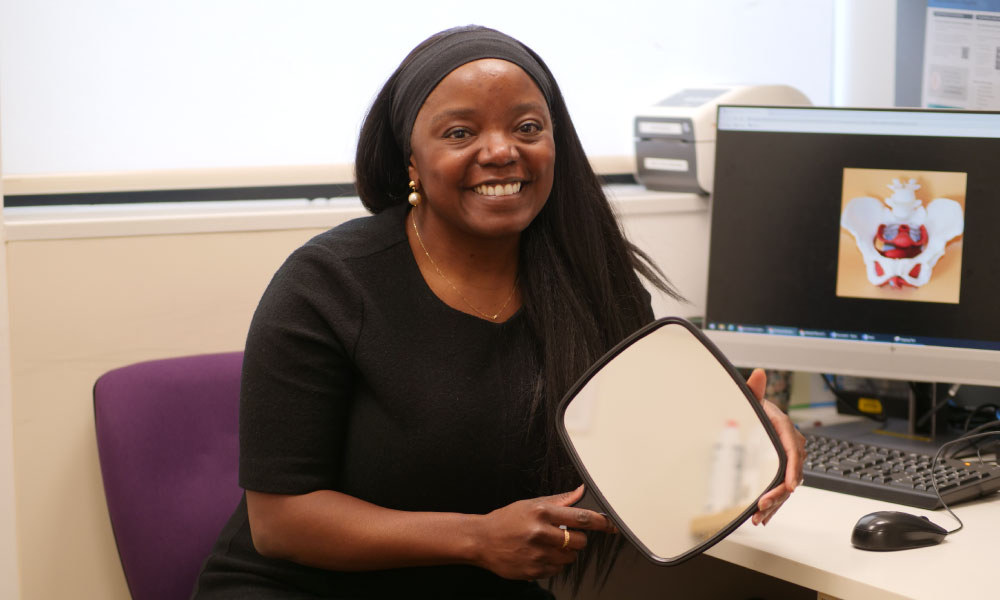
Dr Tanaka Dune wants to talk about your pelvic health. The Royal Women’s Hospital’s urogynaecologist is working to shatter the stigma associated with many women’s health issues.
Prolapse, incontinence, menopause – these are all issues women have been conditioned to fear. But the Women’s pelvic health specialist Dr Tanaka Dune wants women to know they have nothing to be afraid of.
She is on a mission to empower women with knowledge about their pelvic health in a bid to improve their quality of life and address age-old stigmas.
“Your womanhood is such a wonderful thing. But women don’t often think about their pelvic floor until it’s leaking or damaged or falling out,” Tanaka says.
“In society when we talk about a woman’s pelvic floor we often talk about it in the context of how it’s useful. It’s useful from a sexual standpoint and for childbirth and then after that, it’s not spoken about. I want to change that.
“You can really change someone’s life by empowering them with the knowledge that what they’re experiencing is nothing to be ashamed of and that when something goes wrong there are specialists like me who are here to help.”
Education as empowerment
Tanaka and other health professionals like her, educate patients when they come for an appointment at our Women’s Health Clinic. Tanaka is also helping to educate women about their bodies through social media under the moniker ‘Dr Pelvic Floor’.
The first thing she asks patients when they come to see her is how much they know about their pelvic floor. Then she invites them to use a mirror to get to know their bodies better. “You’d be amazed how many women have never done this before,” Tanaka says.
“So many women say they don’t want to look at their vagina or say that it looks ugly,” Tanaka says. “But I tell them – absolutely not! This is what normal is.”

She also provides practical information, like where women can buy lube, anti-chafing stockings and pelvic girdles, items that can help to make their lives more comfortable after childbirth or menopause.
“In my fellowship program I was taught by incredible women to take care of women, and to me this includes teaching other women about practical ways that they can improve their every day,” she says.
“Patients come in here and they say, ‘Why has no one ever told me this stuff before?’ It’s the same whether you’re 18 or whether you’re 56. Everyone can be educated.”
Transforming lives
Tanaka says her passion for women’s health, and urogynaecology in particular, was sparked when she experienced cystitis (a bladder infection) at 19 and realised she knew nothing about that part of her body. That led her to want to help other women to better understand their bodies.
She trained in obstetrics and gynaecology and specialised in urogynaecology in Chicago and New York before moving to Australia to work at the Women’s in 2020.
At the Women’s she sees patients affected by conditions such as vaginal prolapse, fistulas and urinary incontinence. She works in the African Women’s Clinic with women who have experienced traditional cutting (female genital mutilation or cutting), and in the Women’s Perineal Clinic with women who have experienced significant tearing during childbirth.
Tanaka is also an active researcher in urogynaecology. She has done extensive research on the urinary microbiome, and will soon publish a paper on the effect of the lower back and pelvic girdle on the pelvic floor.
“I love taking care of women. I love urogynaecology – working on the bladder, the ureters, the vagina,” she says. “Helping women with issues in this area transforms their life.”